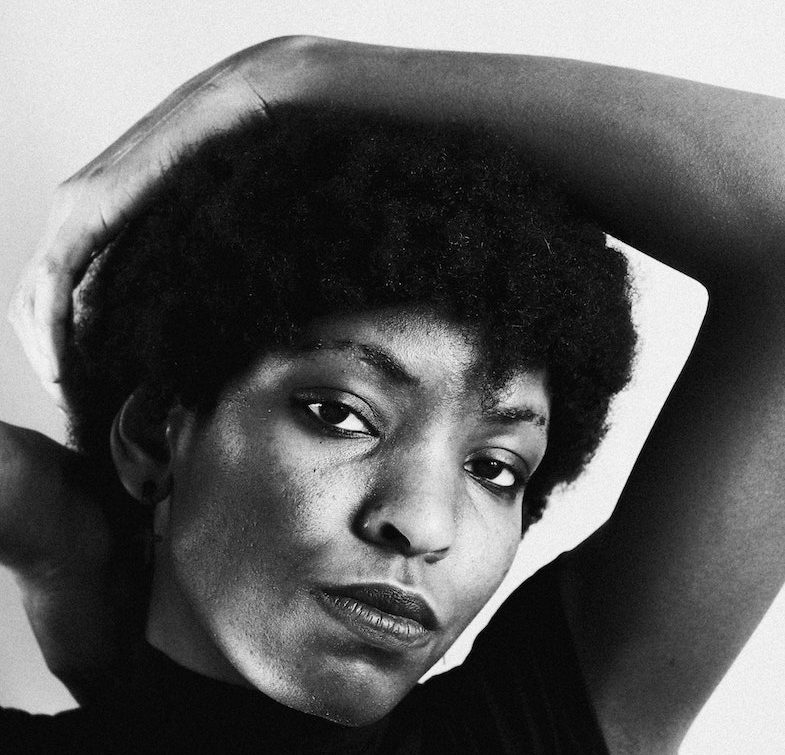interviews
A Genre-Bending Thriller that Examines Mental Illness and Neurodivergence
In Maria Dong's novel "Liar, Dreamer, Thief," a woman has to unravel the mystery surrounding her coworker's suicide

Author Maria Dong tells me that she once pitched a fantasy novel to her agent that she describes as “a pseudo-Victorian, extra gay, old magical opera, but also suffrage.” It is an offhand remark from our conversation that I have returned to often while thinking about how to describe Dong’s debut novel, Liar, Dreamer, Thief, a story that, in many ways, defies expectations of genre; or at least iterations of genre steeped in whiteness and capitalism.
In Liar, Dreamer, Thief, protagonist Katrina Kim leaves her hometown of Pleasance Village, Illinois for the city. There, she takes up rituals to keep herself safe—drawing elaborate shapes on her front door, finding solace in hallucinations from her favorite children’s book—and starts temp work at a predatory company called Advancex, where she soon becomes obsessed with a coworker, Kurt. While her single-minded devotion to memorizing Kurt’s movements and hobbies is deemed by others as “stalkerish,” Katrina soon realizes that her watchfulness is being reciprocated; a cryptic message from Kurt suggests that he, in fact, is watching her.
Just as much as the book is a suspenseful thriller, one in which readers are keen to unravel the convoluted relationship between Katrina and Kurt, it is also an artful exploration of mental illness and the way that axes of marginalization shape reality and perception; and a meditation on the gulf that can exist between immigrant parents and their children. Dong and I spoke over Zoom about representation, the complicated weight that diagnoses hold, and intergenerational grief.
Jacqueline Alnes: In the prologue, Katrina finds a book, Mi-Hee and the Mirror-Man, at the Scholastic Book Fair and says that it’s the “first time I’d seen a Korean name on a children’s book.” That acknowledgment of the importance of representation, felt almost like metacommentary, as we learn that Katrina is Korean American, queer, and struggles with mental health issues throughout the novel. What did you think about while crafting Katrina’s character or what did she teach you through the process of writing?
Maria Dong: I’m mostly done writing white people. I knew I wanted her to be Asian. I knew I wanted her to be queer, because I’m queer, and honestly it’s just easier. I’m mentally ill, so I don’t know if I could write a person without mental illness. I think it would be difficult.
JA: Speaking of being diagnosed, I really enjoyed that Katrina is not diagnosed the entire book. I know diagnoses are useful. But I think there is something beautiful about letting a character be and letting a character perceive the world in the way that she is perceiving it.
MD: That was deliberate. Very early in my conversation with Grand Central, I made it very clear that no diagnosis was to appear anywhere in the book, anywhere in the materials––cover, copy, whatever. I was so lucky that, once I explained my reasoning for it, they were very supportive.
There are two pieces behind that. The first: Katrina’s presentation is abnormal. There’s this whole fantasy piece woven in there, and I thought it would be irresponsible to name a real-world diagnosis that people today are struggling with. If I did that, I would have to explain constantly, “Well, this is not a common feature of X.” Not only do I think that would interrupt the realism of the story, but I don’t think she’s at the place in her mental illness journey where she even knows this information, so it just wouldn’t feel realistic. Real-life people don’t get to have hallucinations of their favorite childhood fantasy book. Hallucinations are not as fun, right? They’re really not.
Another part of that is I have a background in Occupational Therapy so I’ve done some research into developmental psychology and the diagnosis, like the DSM-V, they’re designed as population metrics, to basically inform research and treatment. Between the DSM-IV, which is what we used when I was a kid, and the DSM-V, which is what we use now, inter-rater reliability went down, which essentially means that if two clinicians observe the same patient and come up with a diagnosis, they come up with different diagnoses. They were trying to look at people more holistically, but diagnoses are always evolving.
When I was young, I got diagnosed with bipolar disorder even though I don’t have any symptoms of bipolar disorder. I have ADHD and probably significant depression and a couple other things. But at the time, if you were a person who was assigned female at birth and you were struggling with certain things, they just said, “Bipolar.” You could be thirteen years old, no other features, horrible home life, and they’d be like, “Bipolar.” That kind of diagnostic process really sticks with a person, especially if you don’t know what diagnoses really mean and how to interpret that information. I thought about diagnoses a lot when writing the book. Nothing on the page is reliable. But if I give you a diagnosis for her, now you have this objective, outside frame that’s “reliable” to stick and put her into. The whole point of the book is that it’s not anchored.
JA: It’s slippery the whole time. I was questioning whether the characters were real people. I liked reckoning with that, with her.
MD: I wanted people to know how it feels, to not be able to trust your reality. I could say objectively, you know, you can’t trust your reality but you don’t feel that the same way I do if I construct this giant box around you to the point where you have to start doubting the box itself. That’s the way it feels.
JA: When you bring up doctors dismissing someone presenting as a woman, I think about how Katrina is dismissed by quite a few systems throughout the book. I’m not going to reveal anything, but there’s a point where it seems like it might make sense for Katrina to go to the police with information that she has. But she has been failed so much by systems that are supposed to help her, that she declines.
MD: That’s true of every marginalized person or person on an access of marginality, but then when you start to have multiple axes, like a person of color who is also a woman who is also clearly mentally ill? That effect accelerates.
So, I love Canada. I don’t know what it is. A lot of people who like my stuff live in Canada—I guess I write Canadianly somehow? One of my best friends lives in Canada and I live in Michigan, so right nearby. I should visit all the time, but I’m actually really terrified of land crossings with Canada where I go there and then I try to get back into Michigan, and have been completely harassed by border police. I’ve been held against my will, detained and strip-searched. In retrospect, I wish I could have been braver or borne that better, but I didn’t. I was a huge mess. I cried. I stayed in bed for days afterward.
Yeah, Katrina should go to the police, but every single day you read about police who are actively hurting people around them.
JA: I mean, in the novel when Katrina does go to the police, she goes from someone who’s being a good samaritan to a criminal right in their office. It’s infuriating.
And, you add on top of all these axes the fact that Katrina is working at this predatory job. She is financially precarious because she’s working this temp job that doesn’t pay enough, she’s surveilled at work, she has to pay for her own parking.
MD: A lot of publishing comes from a very privileged place. A lot of writers are privileged, a lot of editors are privileged, and so I feel like you don’t read enough people who are dealing with those circumstances that, to be honest, are probably affecting the majority of Americans. Productivity and surveillance culture are affecting a majority of low wage jobs. That’s where I come from. I did get my OT degree, but I went back at 30. I was already married. Up until that point, I had been working shitty jobs that were precarious. Places work you 39 hours so they don’t have to give you benefits, and I feel like so many of the books I read, particularly in that mystery-suspense genre, have narrators that need a lot of time to complete investigations so the writers have given them jobs where they are really rich artists or something. Then they can conduct these investigations because they’re not going to blow their whole life up. Or, if they do blow their life up, the stakes are higher because their life is so much better than ours. I’m tired of reading people like that.
A lot of publishing comes from a very privileged place.
Both my husband and I have so much financial trauma and there are so many moments where we are about to argue and I’m like, “Whoa, whoa, whoa, are we arguing about this thing, or are we arguing because we used to be broke?” And it’s always because we used to be broke. That kind of stress changes everything. It changes your relationship with others, to yourself, the way you parent, your access to leisure, your ability to take care of your body, all of it.
JA: Katrina’s mother says, “We made a good decision, moving here,” and Katrina comments that she “was never quite sure if she meant emigrating from Korea or just relocating to Pleasance.” What was it like writing the story of Katrina’s parents, and then to think about how their grief or past, secretive lives, which they choose not to share much of with Katrina, might impact her own reckoning with identity and place?
MD: She’s the child of immigrants, and I have an immigrant parent. This relationship is so complicated. When you move to a new place, you want your child to be a part of that culture and have all of those successes that come with being a part of that culture. They have to understand the signals of that culture and the power structures. And the better they get at that, the further they get from you. If you try really, really hard, and you work really hard at it, and you’re the right kind of person to do that, you can kind of bridge that gap. But most people aren’t like that. Most people don’t have the ability to compartmentalize, verbalize, and understand all the different parts of their culture that make them them and then be able to transmit that to their child. That’s not something that most people know how to do.
I truly love my mother and there are so many moments where I feel like I don’t understand her on this fundamental level. That level of not-understanding shifts in different contexts and situations. When I was 15 or 16, I started illegally downloading a bunch of Korean dramas because I didn’t know anything about Korea really and I wanted to know more. My mom and I started to have this weird bond that emerged from these dramas. At first, she made fun of me but then I think there was something of nostalgia there, and then curiosity. She moved so long ago and things had changed since then. That gap between us actually shrank a lot. Even if I didn’t understand her better, I had better ways of talking about the pieces I didn’t understand and she had better ways of explaining it.
There’s this really complex, difficult work when you have a kid and you are an immigrant and particularly if you’re not of the hegemonic culture and you’re trying to bridge that gap. Korea is a culture that is indelibly marked by the conflict of the past 150 years, like the occupation of Japan, the war, U.S. colonialism, all of it. You look at Korean family history charts, and there are just these huge holes of people who were murdered, of records that were burned. I have family members in my own line that were supposedly murdered by the Japanese. There’s so much pain there that it’s hard to talk about.
Have you heard of han feeling?
JA: I don’t think so.
MD: Han is this deep pain and anger and grudge and sadness. It’s thought of in this very tangible way, where you could almost give it to someone else, virally almost, or it could be lodged in a place which is what makes ghosts happen. Now there are these philosophers or anthropologists who are doing these studies of third-generation han for Koreans who have emigrated to other countries and then they have children and their children have their han even though they don’t know where it comes from. It’s something I think a lot about.
JA: It feels impossible to communicate such a vast, painful history in words. When I was reading the food scene, where Katrina’s parents have saved her bottles of mung bean egg replacer for three years, I understood the ways they missed her and the ways that grief showed up tangibly in their life.
Han is this deep pain and anger and grudge and sadness… where you could almost give it to someone else, virally almost.
MD: I thought a lot about that. There’s this weird orientalist shorthand in publishing where they want to see food scenes. It’s almost pornographic, in a way. People think they understand the culture if they understand the food, but they don’t want to learn about the pieces underneath. It’s easy to understand food. Publishers love those scenes. I can think of so so many books written by Asian Americans where there is this non-stop panopaly of food. Sometimes that’s very author-driven, because we often don’t feel like we are the best people to write about our culture because we are aware of our non-Koreanness or whatever or the ways we are not like other people, so we get scared and start writing about food. There’s this whole thing. So I’m writing this food scene and I’m aware of this piece and this piece and also of the interaction between them and Katrina’s choice to be vegan and what it all meant together. That food scene probably had too much thinking around it.
JA: You talked in another interview about how some of the pacing elements are more aligned with what you see in Korean media. You talked about having to situate your story for a Western audience for your editor, and I was curious what tensions existed there.
MD: I don’t think I realized it until after I wrote the book. People were reading it and pointing out the pacing, and I was like, that’s strange, it seems like natural pacing for me. A lot of East Asian media relies on the structure where, at the midpoint, everything just goes completely bonkers. The story will change to the point where it almost shifts genres. And I think also, if you watch Korean dramas, people are very comfortable with elements from different genres just sort of floating around, jumping around, showing up randomly, and it’s not like a thing.
There’s this drama that I recently started watching with my husband. It’s called Extraordinary Attorney Woo on Netflix. It’s about this lawyer and she is autistic and whenever she has a big legal realization, the air fills with whales. Every Korean person watching that was probably like, “Oh, she’s having a realization.” There’s no hard line between fantasy and non-fantasy. It’s not the same in every place. A lot of cultures are very comfortable with fantasy elements, magical elements, particularly I think related to ancestral magic, nature magic, ghosts, past magic in mythology showing up in contemporary contexts.
I think also there’s just the fact of patience. I think this is a product of capitalism and productivity culture. We don’t have time, we don’t have energy. I mean, I don’t anymore! I write books and I don’t have the time or mental energy to read anymore. I have to put it in my calendar every day—30 minutes for reading —and viciously guard that time or I won’t read anything. I think because we are reading less and less, and I think because the real money is making fiction into movies and TV shows, there’s this weird, cyclical relationship where story structures have had to homogenize down into these very specific, as-fast-as-possible, no-leeway, simplified form. The problem is, I can’t write like that. Everything I write is horrendously complicated. I think part of that is cultural.









